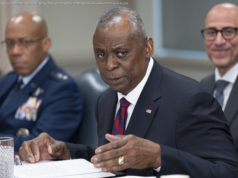In cases touching on issues as diverse as gun and abortion rights to regulations and national security, Judge Kavanaugh has assembled a conservative record.
Judge Brett M. Kavanaugh, President Trump’s nominee for the Supreme Court, has spent the past dozen years embracing the philosophy of the conservative legal movement as he assembled a record on the powerful federal Court of Appeals for the District of Columbia Circuit.
On issues as diverse as abortion and gun rights to disputes over national-security policies and business regulations, Judge Kavanaugh emphasized textual limitations while frequently favoring corporations over regulators, and the government over individuals claiming rights violations. With a few exceptions, his pattern is typically conservative.
To be sure, Judge Kavanaugh’s history on the bench is not a perfect guide to the approach he would pursue if confirmed to fill the Supreme Court vacancy created by the retirement of Justice Anthony Kennedy, for whom he once clerked. Appeals court judges are bound to obey Supreme Court precedent, but justices are free to vote to overturn past rulings.
Still, the judge’s record — especially in cases where he disagreed with colleagues — provides clues about the sort of justice he would be if the Senate confirms him.
Here are some of the notable issues and cases he has addressed. Many of them arose from disputes over the scope and limits of the power of the federal government.
In a case last fall that drew widespread attention, the appeals court voted to allow an undocumented pregnant 17-year-old in immigration detention to seek an abortion without delay; the Trump administration had wanted to first transfer her to an adult sponsor for guidance.
Judge Kavanaugh dissented. He wrote that while the appeals court was bound to obey Supreme Court rulings that said that the Constitution protects a woman’s right to choose an abortion, those precedents left room for the government to apply “reasonable regulations that do not impose an undue burden.”
He maintained that the government was within its bounds to choose a transfer to a sponsor instead of “forcing the minor to make the decision in an isolated detention camp with no support network available.” Judge Kavanaugh accused the majority of wrongly inventing “a new right for unlawful immigrant minors in U. S. government detention to obtain immediate abortion on demand.” He said that barred the government from intervening to connect minors with their immigration sponsors before making such a serious life decision. “The majority’s decision represents a radical extension of the Supreme Court’s abortion jurisprudence,” he wrote.
Judge Kavanaugh disagreed with his colleagues in a 2015 case about a part of the Affordable Care Act that required insurers to cover contraception. Under the law, employers must provide insurance to their workers or pay a fine. But employers who oppose contraception on religious grounds can bypass the requirement by submitting a form to their insurers, which then cover the workers’ contraception at no expense to the employers.
Some religious organizations challenged that arrangement, contending that even submitting the form made them complicit in providing contraception. An appeals court panel rejected their argument, and the full appeals court decided not to rehear it — over Judge Kavanaugh’s objections.
Forcing employers to submit the form violated their religious liberty, he wrote, though he acknowledged a Supreme Court precedent that strongly suggested that the government “has a compelling interest in facilitating access to contraception for the employees of these religious organizations.” The same outcome could be achieved, he contended, if employers instead only had to notify the government of their objections and let the government deal with the insurers.
Separately, in a 2010 case, some atheists challenged the saying of a prayer at presidential inaugurations and the phrase “so help me God” in the presidential oath of office. A three-judge panel dismissed the lawsuit. But while the other two judges merely said the plaintiffs had no standing, Judge Kavanaugh weighed in on the merits.
He upheld the practice as constitutional, citing the principle that government-sponsored religious speech or prayer at public events where prayers were traditionally said do not violate the First Amendment’s prohibition on establishment of religion, so long as the prayers are “not proselytizing (seeking to convert) or otherwise exploitative.”
Judge Kavanaugh carved out a more gun rights-friendly view than colleagues in a 2011 case arising from a challenge to a District of Columbia law that required gun owners to register and banned possession of semiautomatic rifles. While the appeals court upheld the limits as constitutionally permissible under the Second Amendment, Judge Kavanaugh dissented.
He wrote that while the government may ban fully automatic machine guns, a ban on semiautomatic rifles should be unconstitutional because they “have not traditionally been banned and are in common use by law-abiding citizens for self-defense in the home, hunting and other lawful uses.” He also said that because registration had not traditionally been required for all lawfully possessed guns, that rule should be struck down, too.
Judge Kavanaugh has also expressed skepticism about moves by Congress to permit executive-branch agencies to operate with some degree of independence from the White House. In a 2008 case, the appeals court upheld the structure of the Public Company Accounting Oversight Board, whose members were appointed by the Securities and Exchange Commission and could only be removed by the S. E. C. for good cause. But Judge Kavanaugh filed a dissent, saying it “effectively eliminates any presidential power to control” the board’s regulatory and law-enforcement functions.
The Supreme Court later partly agreed with him, voting 5 to 4 to strike down the limitations on firing members of the board — but not the appointing provisions. And earlier this year, his appeals court upheld a law that limits the president’s discretion to fire the Consumer Financial Protection Board’s director, who has a fixed five-year term and may be removed only for good cause. Judge Kavanaugh filed a dissent, arguing that it was unconstitutional to give the director that much independence from White House control.
In several important cases brought by Guantánamo Bay detainees, Judge Kavanaugh generally sided with the government. In habeas corpus cases, for example, he broadly interpreted the military’s power to hold people in wartime detention even when the evidence of their suspected ties to terrorism is relatively weak.
Those included a 2010 case in which he was part of a three-judge panel that kept a Yemeni detainee in custody, reversing a lower-court judge’s order. That case established a precedent that courts should consider an array of evidence even if each individual piece would be dubious when viewed in isolation. The approach made it much harder for detainees to win habeas corpus cases.
And in military commissions issues, he argued in a 2014 dissent that the appeals court had no jurisdiction to hear challenges brought by defendants before the tribunal issues a final judgment. In a convoluted 2016 case upholding a defendant’s conviction on a charge of conspiracy even though conspiracy is not an internationally recognized war crime, he went further than the reasoning of some of his colleagues, writing that international law cannot be enforced in court as a constraint against what Congress and the president do with tribunals.
In October 2012, Judge Kavanaugh was part of a three-judge panel that scrutinized a South Carolina law generally requiring voters to present government-issued photo identification in order to cast a ballot.






